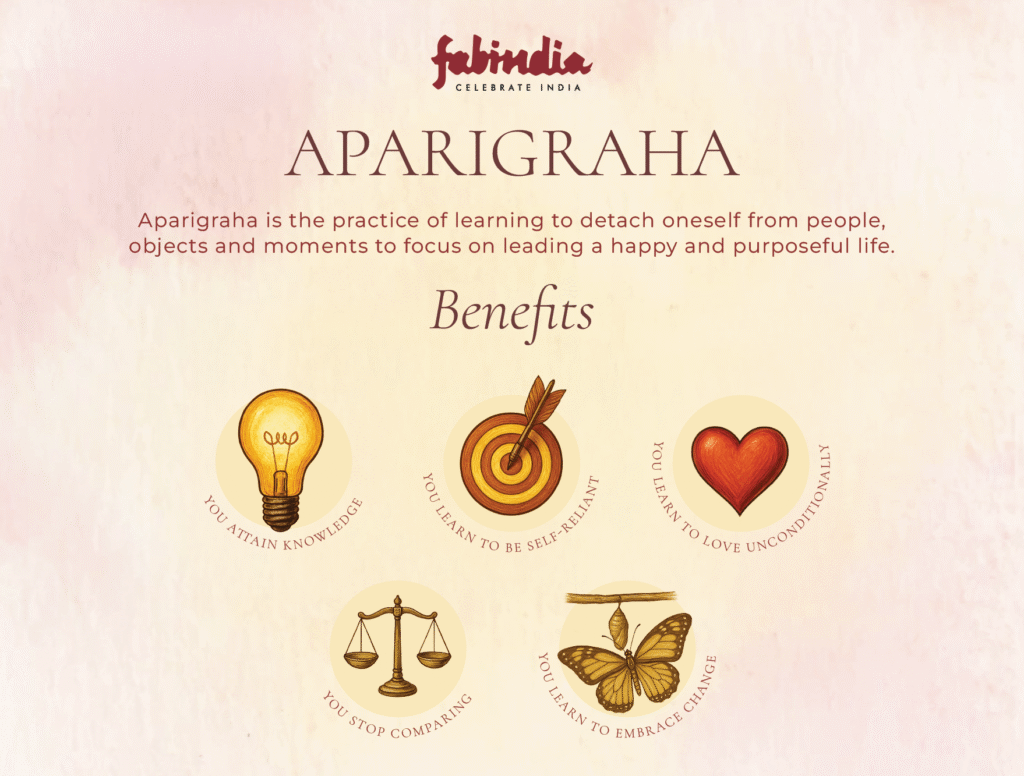In a country as vibrant, diverse, and layered as India, life often unfolds in beautiful chaos- festivals, food, colour, celebration, and abundance. But even amidst the richness of our cultural traditions, there’s a quiet wisdom that’s always existed: santosh, or contentment. It’s a value our grandparents lived by, a reminder that enough can be, well, enough.
And today, in a world where more is constantly marketed as better, that ancient wisdom is more relevant than ever.
Less Stuff, More Space
Traditional Indian homes, be it a Kerala Tharavadu, a Bengali zamindari house, or a modest village courtyard, were not overflowing with things. They had what was needed, lovingly preserved and passed down. Copper vessels, woven baskets, brass lamps, they weren’t decorative props but functional, cherished items. Every object had a purpose. Every space had breathing room.
Cut to today, and many urban Indian homes resemble storage units. Shopping festivals, same-day delivery, impulsive Diwali hauls, it adds up. And eventually, it weighs us down.
When Sentiment Becomes Clutter
The average Indian wardrobe tells a story of emotional excess: outfits from cousins’ weddings, saris gifted by in-laws, three sizes of kurtas just in case, and stacks of festive wear reserved for “one day.” It’s sentimental, but not always sustainable.
Decluttering doesn’t mean discarding memories. It means making space to honour the pieces we actually value. The Banarasi sari you wore on your wedding day? Preserve it. But that impulse buy from an online sale? Maybe let it go.
Minimalism Isn’t Western- It’s Been Ours All Along
Contrary to belief, minimalism isn’t a Western trend. In Indian philosophy, it’s embedded deeply. From the monks of the Himalayas to the Gandhian way of life, owning less was always seen as a form of freedom. Aparigraha, a principle from yoga, teaches us to detach from material excess.
Even traditional Indian practices like floor seating, thalis for meals, or storing spices in repurposed steel dabbas reflect a mindset of simplicity, efficiency, and elegance in function.

Small Changes, Big Shifts
- Rethink Gifting – Instead of extravagant hampers with more packaging fluff than product, gift homemade laddoos (and no, re-gifting Son Papdi for Diwali does not count)
- Buy Once, Buy Well – Invest in a good cotton or silk kurta rather than 5 fast fashion pieces.
- Reuse Creatively – Repurpose your old saris into skirts for your daughters
- Digital Declutter – Clean your WhatsApp forwards, unsubscribe from noisy newsletters and limit your screen time
In the Silence of Less, We Find More
Decluttering your home isn’t just about cleaning. It’s an emotional exercise, a spiritual detox. And in India, where homes are often extensions of family histories, this can be profound. You don’t have to erase the past, just make peace with what truly belongs in your present.
Because sometimes, the less you carry, the lighter you feel. And in that lightness, there’s more room for peace, intention, and joy.






